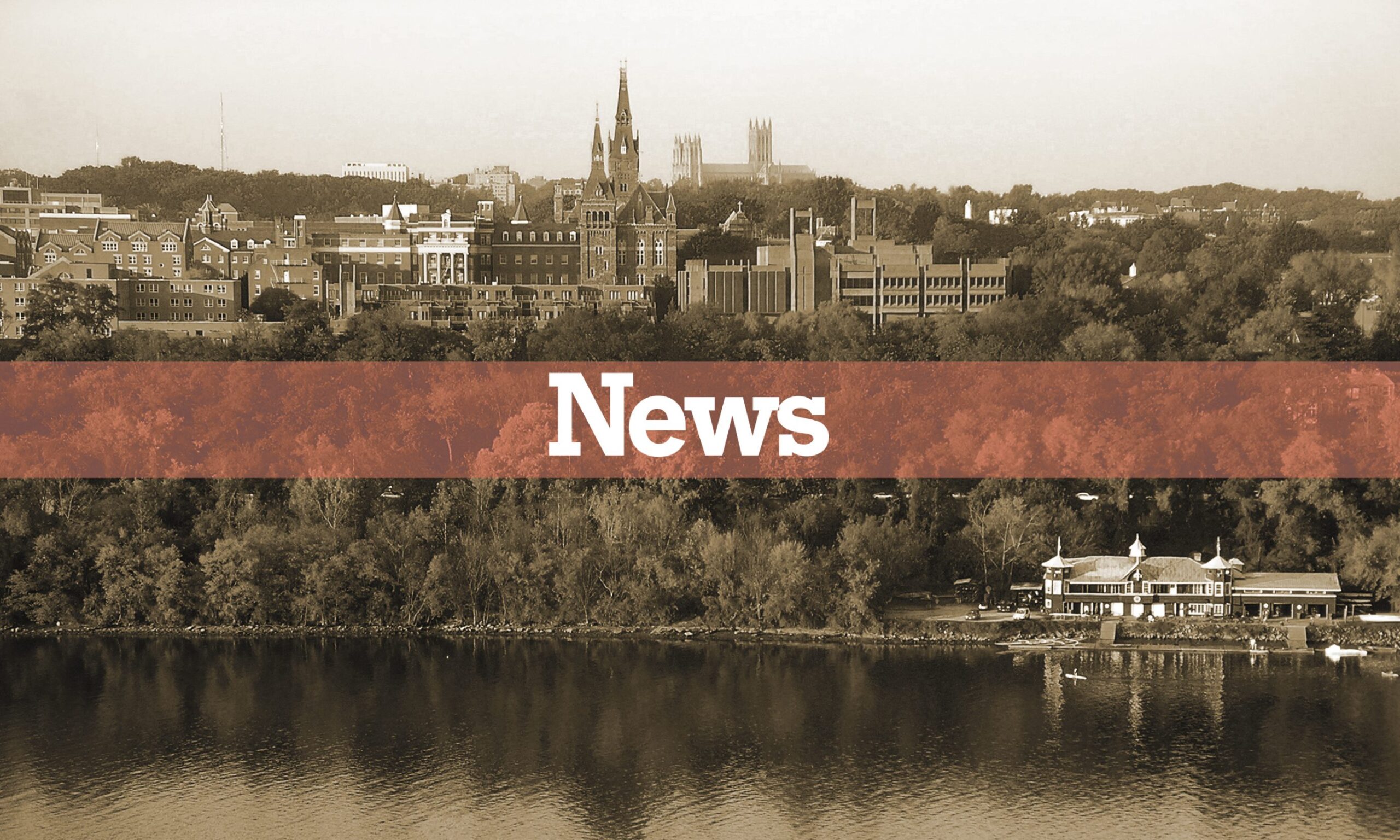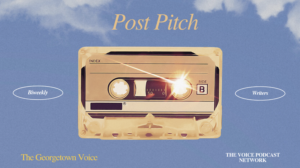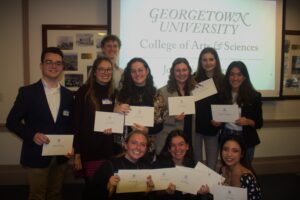Georgetown’s undergraduate journalism program hosted a panel discussion with journalists to discuss the changes and challenges to journalism in the wake of Donald Trump’s presidency. The March 22 talk was part of The Salim El-Lozi Lecture Series and brought together four journalists as well as John Kirby, the spokesman for the U.S. State Department under the Obama administration, who moderated the discussion.
Barbara Feinman Todd, professor and director in the journalism program, said that the program hosted this event, called “Muckraking in an Era of Liars, Trolls and Swamp Things,” to examine the political climate of the United States. In the past, Salim El-Lozi lectures focused on issues abroad, including Austin Tice’s detainment in Syria and the dangers of reporting in areas of war
This year, Todd said that it was necessary to consider the new political climate and challenges it brings to journalism. “The mission is…. to explore issues of freedom on the press, first amendment issues, challenges to journalists who are trying to report freely, so I think this fits in beautifully with it,” Todd said.
The panelists discussed the challenges of covering the Trump administration. Sarah Harvard, a staff writer for Mic.com, spoke about how her Muslim identity and personal politics sometimes made it challenging for her to cover political events under the Trump administration. When the story of the Muslim ban broke, for example, Harvard said it was difficult to listen to the stories of people being detained without becoming emotionally involved.
“Hearing people sob on the phone is hard. You’re supposed to inform the public and you’re told not get carried away, but we’re writing stories about human beings. We’re writing stories that actually impact lives,” Harvard said.
Justin Green, news editor for Axios, said the 2016 election sparked interest in journalism that had not been there previously. “The fact that people will now read stories about potential cuts to SNAP and that people will read stories about how what feels like a drop in the federal budget will lead to individual people, that kind of interest I haven’t seen,” Green said.
Lewis Wallace, an independent writer, editor, and radio producer, worried that his work was driving policies which he does not agree with. He said that the coverage around President Trump’s tweets could distract from substantive issues and allow Trump to control the media. “Donald Trump is a genius at driving the daily news cycle, but I felt some I felt some existential crisis going on– are we just letting him do that if we just keep covering the tweets? And I don’t really have an answer to that,” Wallace said.
Students who attended the event were grateful to hear diverse perspectives on issues that affected their lives. Andrew Wallender (COL ’18) helped organize the event and said that he was glad it focused on issues related to the United States. “I think this is a really timely topic. In prior years, this lecture series has focused on international issues of press freedom but I think with all the events of the past year and the election, it’s good to take that turn inward and look at your country and see how issues of press freedom are playing out,” he said.
Abigail Lindsay (COL ‘17) said that attending this event changed the way she viewed news and media. “In an era where media is partisan and news is partisan, it’s so important to understand the perspective of the press and how they’re approaching these issues and how to be an informed consumer in this era of super hyper-politicized rhetoric,” she said.
According to Todd, this was precisely the goal of the event. When asked what she hoped students would walk away from the event with, she responded, “A greater understanding of what it’s like to be a journalist covering American politics today.”




